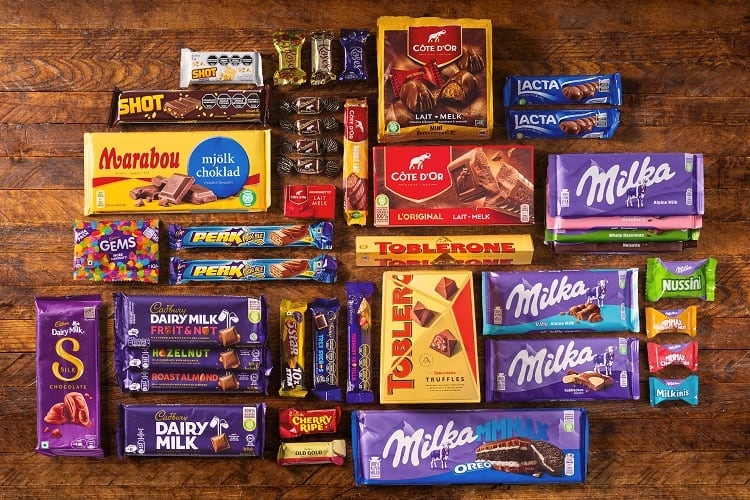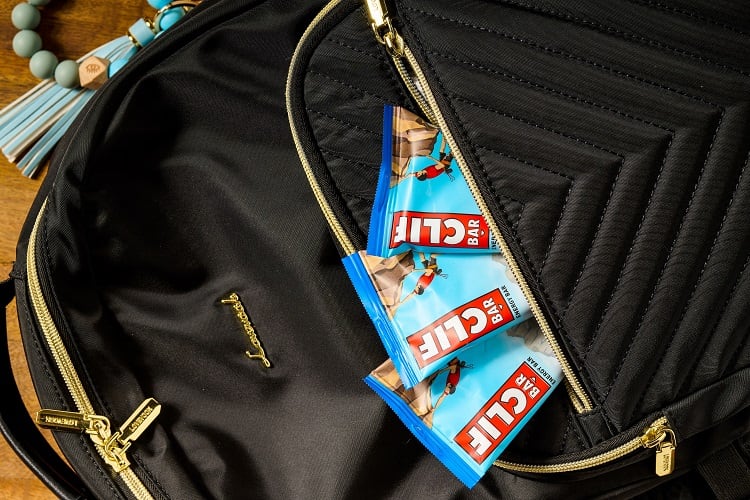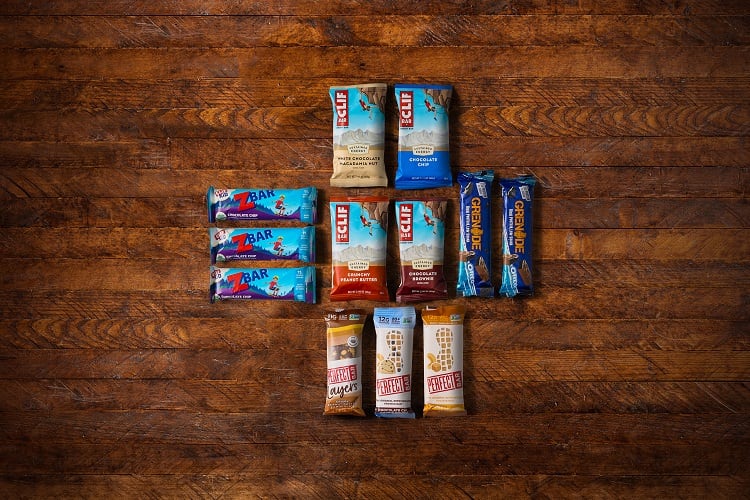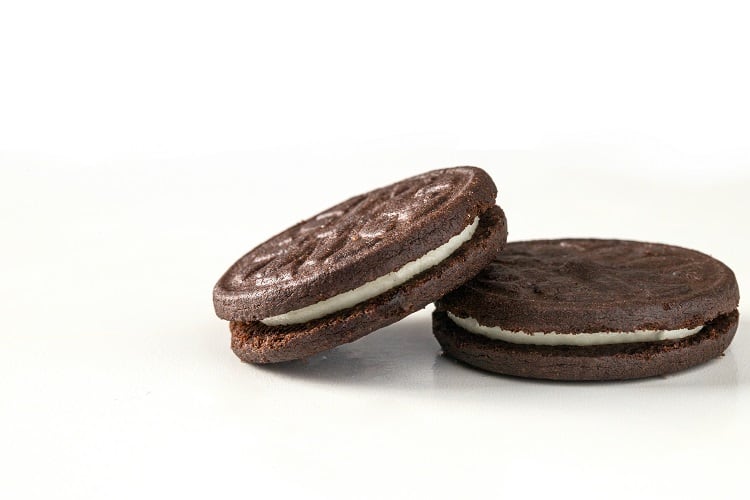Mondelēz International doesn’t always innovate in-house. The snacks major also keeps an eye on the start-up landscape, and when it finds a good fit, invests via its corporate venture arm SnackFutures Ventures.
When investments in consumer packaged goods (CPG) start-ups are made, it’s with a view to acquiring that business.
The snacks major has made some noteworthy acquisitions in recent years, including paying $2bn (€1.87) for croissant and baked snacks maker Chipita, $2.9bn for snacks bar brand Clif Bar & Company, and $1.3bn for confectionery business Ricolino.
So how does Mondelēz choose its investments? The snacks giant selects businesses with the potential to be ‘really disruptive’ in the snacking space, according to Richie Gray global head of SnackFutures Ventures, “because ultimately, we would see that being part of the Mondelēz portfolio in the future”.
What does a snacks start-up mean to Mondelēz?
Although well known for its confectionery portfolio (Mondelēz owns big-name chocolate brands Cadbury, Milka, and Toblerone, amongst others), the company sees itself first-and-foremost as a snacking company. “We aim to be the biggest snacking company in the world, and our purpose is around making the right snacks for the right occasion targeting the right people,” explained Gray, who works out of Mondelēz's European headquarters in Switzerland.
For Mondelēz, confectionery falls under the ‘snacks’ umbrella. So when the company looks for innovations in the snacking category, it could mean anything from confectionery to chocolate biscuits, baked snacks, bars, cakes and pastries.
“’Snacking’ is quite broad, and actually that’s the beauty of it. It’s why we chose to be unashamedly a snacking company, because it’s such a massive space to play in.”

As to the size of the start-up CPGs Mondelēz might be interested in investing it, it’s mostly going for later-stage businesses. The company wants to see ‘real signs of traction, success, and scaling up’, we were told.
Do snacking investments need to be healthy?
Health, nutrition, and sustainability are ‘table stakes’ for Mondelēz’s investment criteria. On the health and nutrition side of things, the company is invested in ‘mindful snacking’. According to Mondelēz’s most recent State of Snacking report, 67% of respondents are looking for snacks that are portion controlled, and 70% would rather have a smaller portion of an indulgent snack instead of a bigger portion of a low fat/sugar alternative version.
“There is still a role for indulgence,” said Gray. “We talk about permissible indulgence, meaning brands or products that are still tasty, still about an indulgent moment, but delivered in healthier way, with less sugar and less fat.
“The real sweet spot comes when you find businesses that are really delivering on health credentials that are also delivering on taste, because taste is still paramount in the snacking world.”
When assessing fat, sugar and salt content in a product, the company uses the nutrient profile model (used to identify HFSS products in the UK) and also uses Nutri-Score as a guideline.
Mondelēz is very aware of ‘clean label’, too. The company has observed consumers reading products’ back-of-pack information ‘more than ever’ and wants to make sure it’s hitting the mark with recognisable ingredients.
‘Real nutrition’, or functional snacking, is also on Mondelēz’s radar. “Gut health is really taking a hold within snacking, and I’m quite interested in the area of personalisation when it comes to snacking choices,” revealed Gray.
Sustainable snacking: From ingredients to packaging
When looking to invest in snacking start-ups, environmental sustainability is also front-of-mind for the SnackFutures Ventures team. Consumers want sustainable ingredients that are responsibly sourced and transported, explained the VC lead.
This is reflected in Mondelēz’s State of Snacking report, which found that 54% of respondents are making an effort to eat more plant-based snacks.
“We’re always interested in businesses that generally have a low carbon footprint, are using less water, or are supporting regenerative agriculture.”
But it’s not all about ingredients. Packaging is a sustainability concern for consumers, who increasingly want less plastic in their snacks wrappers. According to Mondelēz research, consumers want to ‘snack with purpose’. Close to three-quarters (74%) of consumers typically recycle their snack packaging and 67% said they prioritise snacks that have less plastic packaging.

Packaging is also related to convenience. Mondelēz has long recognised convenience as a mega trend in snacking, so much so that these days, it’s ‘almost a given’ that its snack formats be easy to consume, according to Gray.
But looking beyond convenience, SnackFutures Ventures is also interested in packaging capable of either enhancing the overall consumption experience or making a product more ‘luxurious’.
SnackFutures Ventures is not looking at CPGs only
Mondelēz’s corporate venture arm already has a number of start-ups in its portfolio, and not all are CPGs. The company is also investing in technology companies, which it sometimes approaches with a different aim.
“When we invest in technologies, it’s not necessarily about acquisition. It’s about finding the right technologies to partner with, and the investment is more a means to an end in that case.”
On the CPG side of things, Mondelēz has invested in early-stage start-up Craize, which makes snacks based on arepas (a northern South American dish made from ground maize dough stuffed with filling). “It’s a tortilla type of product with some really innovative, unusual flavours, including banana, coconut and guava,” explained Gray. “It’s a unique product with a unique process to develop it. We see it as having the potential to really disrupt the cracker space.”
The snacks giant also invested in, and has since fully acquired, US-based premium vegan chocolate brand Hu.
Mondelēz is also investing in B2B start-ups such as Israel-headquartered cell-based cocoa start-up Celleste Bio and snacking technology start-up Torr Foodtech. The former has potential to improve sustainability and reduce cost in cocoa, believes Gray. “We’ll continue to monitor and work in the regulatory landscape associated with that one.”
Torr Foodtech, which ‘welds’ ingredients to replace sugar binders in snacks, can already be applied to Mondelēz’s snacks portfolio. “That technology allows you to create a snack bar with no added sugar, because you don’t require anything to bind the ingredients.
“These are examples of enabling technologies…and we’re certainly looking for more examples like that in this space.”



